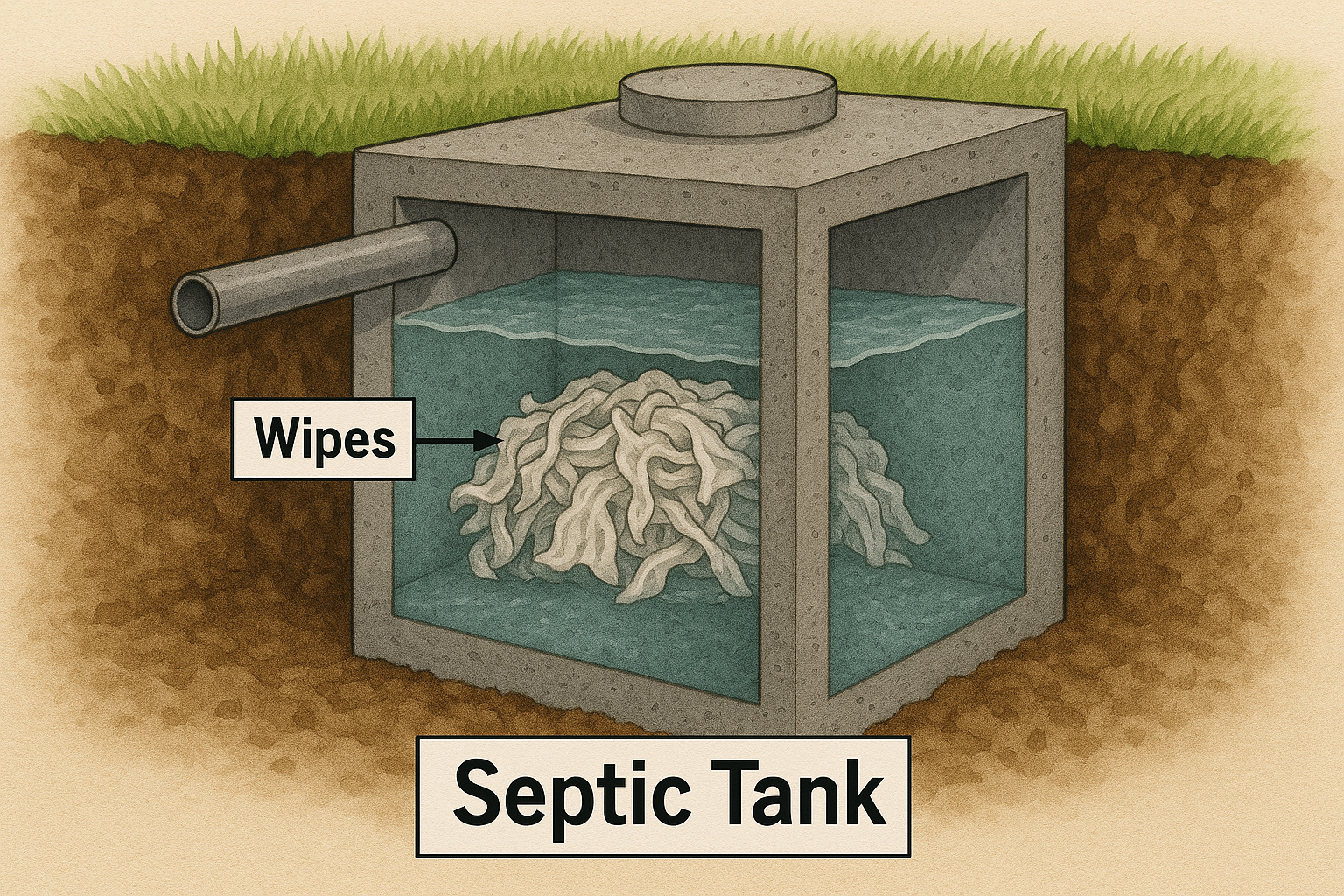A properly functioning septic system is crucial for a healthy and efficient household. Regular maintenance not only helps prevent backups and costly repairs but also extends the lifespan of your system. Whether you’re a new homeowner or have had a septic system for years, these essential tips will help you maintain its efficiency and avoid common issues.
How a Septic System Works
Understanding how your septic system works can help you take better care of it. A typical septic system consists of a septic tank and a drain field. Wastewater from your home flows into the septic tank, where solids settle at the bottom, and lighter materials like grease and oil float to the top. The liquid portion flows out to the drain field, where it is naturally filtered into the soil.
If not maintained properly, solids can build up in the tank, leading to blockages, system failure, and potential health hazards.
1. Pump Your Septic Tank Regularly
One of the most important maintenance tasks is having your septic tank pumped regularly. Over time, solids accumulate in the tank, and if not removed, they can clog the system.
- Most septic tanks need pumping every 3-5 years depending on usage.
- Larger households may require more frequent pumping.
- A professional septic service can inspect and determine the right pumping schedule for your system.
2. Be Mindful of Water Usage
Excessive water usage can overwhelm your septic system, preventing it from functioning properly. To avoid strain:
- Fix leaks and drips to prevent unnecessary water waste.
- Use high-efficiency toilets and water-saving appliances.
- Spread out laundry loads and dishwasher use throughout the week rather than doing everything in one day.
- Avoid long showers and unnecessary water usage.
3. Watch What Goes Down the Drain

What you flush or pour down the drain has a significant impact on your septic system’s health. Avoid flushing or draining:
- Grease, fats, and oils (they can solidify and cause blockages).
- Coffee grounds, eggshells, and food scraps (use a compost bin instead).
- Non-biodegradable items like wipes, sanitary products, and paper towels.
- Harsh chemicals, which can kill the beneficial bacteria in your tank that break down waste.
4. Maintain Your Drain Field
Your drain field plays a crucial role in filtering wastewater. To keep it functioning properly:
- Keep heavy vehicles, equipment, and structures off the drain field to prevent soil compaction.
- Avoid planting deep-rooted trees or shrubs near the drain field, as roots can damage pipes.
- Divert rainwater away from the drain field to prevent excessive water saturation.
5. Use Septic-Safe Products
Harsh cleaning products and chemical drain cleaners can disrupt the natural bacterial balance in your septic tank, making it harder for waste to break down. Instead:
- Use septic-safe toilet paper.
- Opt for natural cleaning products or mild detergents.
- Avoid excessive use of antibacterial soaps and bleach.
6. Get Regular Inspections
Routine inspections by a professional can help detect early signs of trouble before they become costly problems. Septic inspections should be done:
- Before buying or selling a home with a septic system.
- If you notice slow drains, bad odors, or wet spots in your yard.
Signs Your Septic System Needs Attention

Ignoring septic system issues can lead to expensive repairs and potential health hazards. Look out for these warning signs:
- Slow-draining sinks, showers, or toilets.
- Gurgling sounds in the plumbing system.
- Unpleasant odors around the septic tank or drain field.
- Pooled water or overly lush grass near the drain field.
If you notice any of these signs, contact a septic service professional immediately.
Conclusion
Taking care of your septic system doesn’t have to be complicated. By following these essential maintenance tips—regular pumping, mindful water usage, proper waste disposal, and routine inspections—you can prevent costly repairs and extend the life of your system. A little attention now can save you significant headaches in the future.
Need professional septic services? Contact us today for reliable septic pumping and maintenance!




